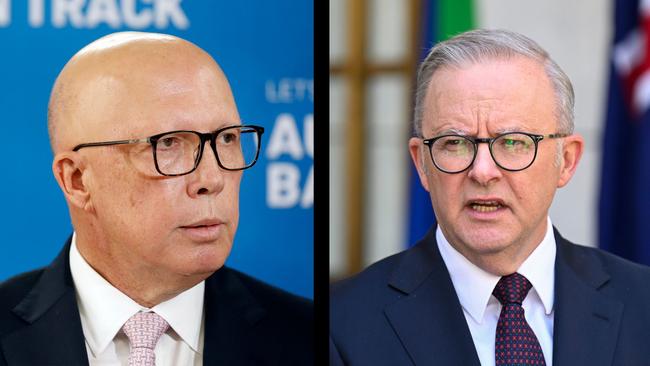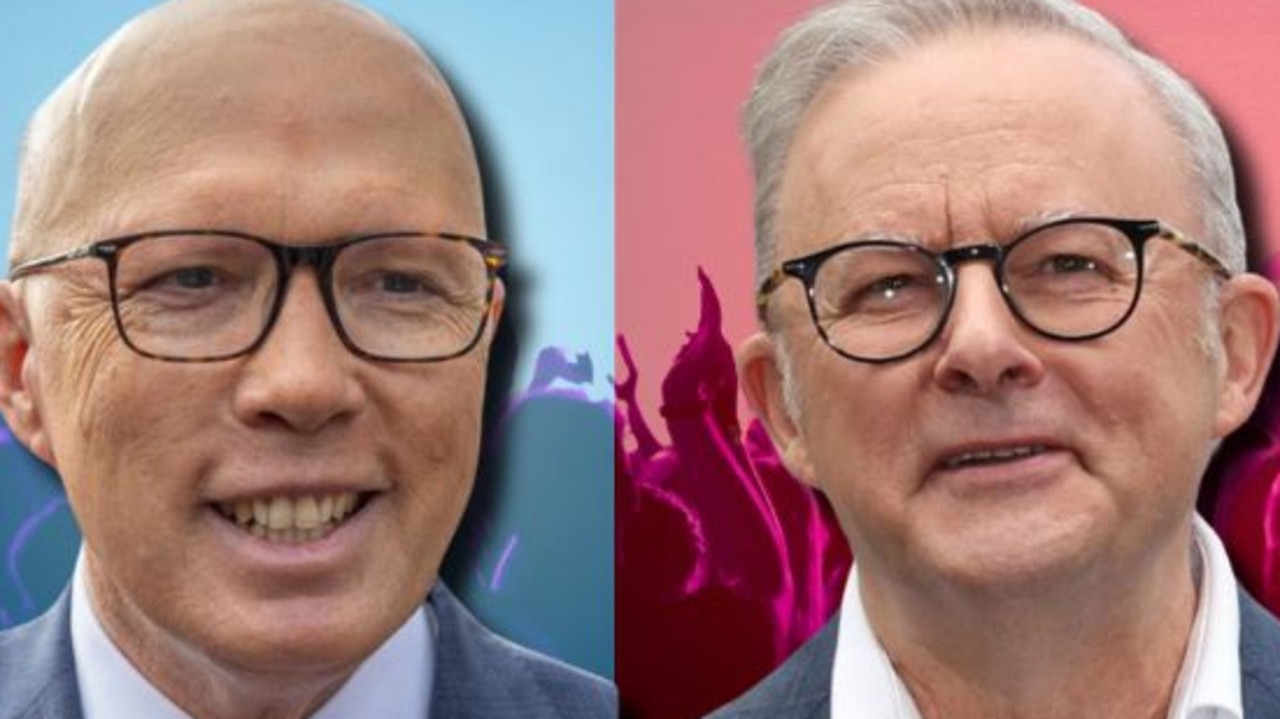Editorial: Shameless vote-buying by parties
Less than two weeks into the campaign, the parties have already proffered billions of dollars of enticements to voters, writes the editor.

Opinion
Don't miss out on the headlines from Opinion. Followed categories will be added to My News.
Does bribery actually work as an election strategy? The major political parties clearly think so.
We are less than two weeks into the federal election campaign and they’ve already proffered billions of dollars of enticements to voters – from Labor’s solar battery grants to the Coalition’s halving of the fuel excise. The Greens, meanwhile, are promising the world – from wiping student debt to free child care for all.
No one is calling it bribery, of course. Rather this is all “cost-of-living relief” or “good for the environment” or “fair and equitable”. Who could complain?
Well, taxpayers for a start, even if you stand to benefit directly from this blatant voter-bait. Remember, all this gladhanding largesse from campaigning politicians comes straight from the public purse.
That means every dollar that is handed out to woo this or that group of voters means one less dollar to spend on something else that might benefit the greater common good – health or roads or hospitals, perhaps.
Labor’s plan to offer $4000 toward the cost of installing residential solar batteries is a perfect example. Prime Minister Anthony Albanese says the scheme – costed at $2.3bn – “is good for power bills and good for the environment”.
Perhaps, but only if you’ve got the extra $10,000 or so to cover the rest of the cost of the battery. In other words, this a scheme that will benefit middle-class households at the cost of lower-paid taxpayers without the spare cash to invest in expensive solar batteries, let alone cover the weekly food bill.
The Coalition’s proposal to halve fuel excise by 25c a litre is arguably a much fairer use of public money because every motorist stands to benefit. But like so many other expensive campaign promises (including Labor’s battery subsidy plan), it too has a fundamental flaw – and that is, where is the estimated $6bn cost of the proposed one-year scheme going to come from?
Unless the money can be found by cutting existing government programs then the funds will have to be borrowed, adding to future debt burden for what amounts to a pre-election bribe – the economic management style enthusiastically embraced by the previous Miles state Labor government.
Mr Dutton has already shown a willingness to abandon efforts to rein in government spending if they are too politically contentious.
He has dramatically tossed out the Coalition’s plans to force public servants to return to the office – initially flagged as some sort of cost-saving initiative, but quickly ditched once the polling came in showing voters thought it was a terrible idea.
Politicians will always make big-spending promises during election campaigns in their efforts to win over targeted voters.
Very occasionally, some of their grand ideas turn out to be good policy – think of the success of the Miles government’s pre-election decision to introduce 50c public transport fares. The difference, perhaps, is that policy comes at a pretty manageable cost to the budget. The Miles government’s ridiculous $1000 power price rebate for every single household – at an eye-watering one-off cost of $2.5bn – was an example of a poor choice.
But don’t look a gift horse in the mouth, they say. And so, if the government wants to give you $4000 to install a solar battery, you’d be a fool not to take it, right? Is $4000 enough to buy your vote? Mr Albanese hopes it is.
MENTAL HEALTH SUPPORT VITAL
There are few more important issues facing our community – particularly post-Covid-19 – than the issue of mental health.
So it was good to see Prime Minister Anthony Albanese make it front and centre of the federal election campaign yesterday with a $1bn package over four years to open or upgrade more than 100 mental health service centres.
It has become almost impossible to get ongoing support from a mental health professional in recent years, as anybody who has had to do so knows only too well (and there are many of us on that list).
This was an issue at the centre of our recent – important – Can We Talk? campaign, presented in partnership with Medibank. It provided a critical platform to help advocate for more government support in this space. Now, the Prime Minister has listened.
Opposition Leader Peter Dutton did, too – announcing in his budget reply speech (which was deliberately overshadowed by Mr Albanese calling the election the very next morning) that as prime minister he would spend an additional $400m on youth mental health services.
Governments investing in mental health support is the very opposite of their other cynical attempts to buy votes with pointless handouts.
Australia’s egalitarian society was built on the concept of a safety net that we all share in funding. It is one of the things that makes us stand apart from individualistic cultures like that of the United States. Well done to both sides for their pledges.
Responsibility for election comment is taken by Chris Jones, corner of Mayne Rd & Campbell St, Bowen Hills, Qld 4006. Printed and published by NEWSQUEENSLAND (ACN 009 661 778). Contact details here
Originally published as Editorial: Shameless vote-buying by parties


